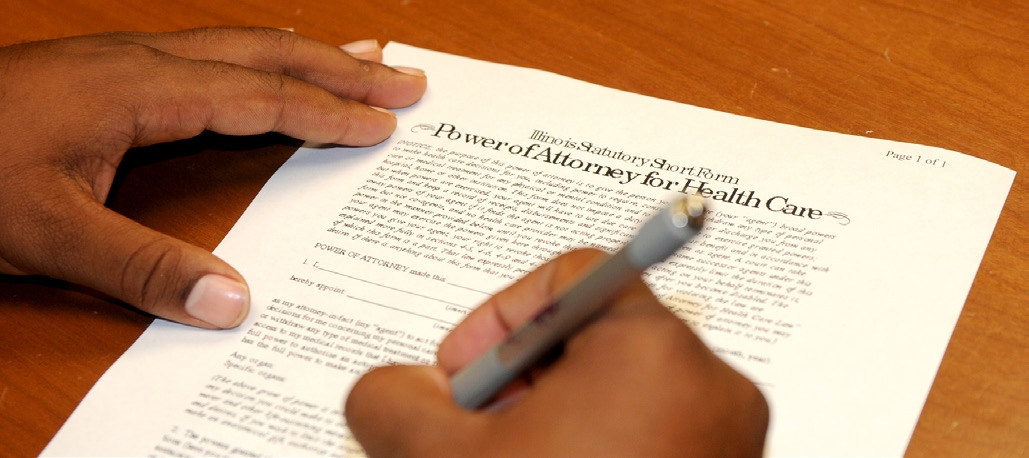A Power of Attorney is a legal document that allows another person to act on your behalf. Acting under a Power of Attorney, the individual designated to act on your behalf is your agent.
One common use for Power of Attorney is to designate an agent to handle an individual’s medical decisions.
Purpose of a Medical Power of Attorney
A Medical Power of Attorney, or commonly known as Advance Healthcare Directive, designates an agent and an alternate agent to make medical decisions on your behalf. The document can be tailored to suit an individual’s needs, including specifying end of life choices and preferences for certain procedures while still capable.
Medical Power of Attorney Requirements
There are a number of requirements for a Medical Power of Attorney to be considered valid.
- You must be of legal age and mentally competent;
- The Power of Attorney is notarized, or witnessed.
A Medical Power of Attorney can be a versatile and powerful document, ensuring that your medical matters are handled in accordance with your wishes. We are happy to provide you assistance in creating the best document to suit your needs.
What Is A Medical Power of Attorney?
A medical power of attorney is an advance directive that allows an individual to name a zzz another individual that has the authority to make treatment decisions on the other’s behalf. Once the medical power of attorney has been established, the secondary individual, also known as an attorney in fact or health agent, can make treatment decisions only if the patient is unable to do so. For a medical power of attorney to be valid, the individual must be of legal age and mentally competent and the document must be notarized or witnessed.
Without a medical power of attorney, only a medical professional can make decisions on behalf of the patient.
When Do You Need A Medical Power of Attorney?
Anticipating a future where you will need to establish a medical power of attorney is unpleasant. Because medical power of attorney is only necessary in situations where an individual is unable to communicate or is unfit to make decisions for themselves, concerned parties should consider several aspects of their lifestyle before committing.
Genetic History
As we age, our bodies and minds begin to fail us. For some, this could necessitate a medical power of attorney. Consider your personal genetic history and what conditions are common throughout your family. If you are at risk for Alzheimer’s or other diseases that impact cognitive function, it may be wise to look into medical power of attorney before you start experiencing symptoms.
Dangerous Jobs
Careers that require employees to work around dangerous equipment or otherwise unsafe conditions can result in injury. If you believe it is possible that an injury on the job could result in paralysis, coma, or another form of incapacitation, establishing a health agent ahead of time can grant you peace of mind.
In Case of Accident
For some individuals, it may be beneficial to establish a medical power of attorney without being at risk for disease or injury. Heads of households for example, may want to establish a health agent in case of an accident who can act with the interests of the household in mind. If finance plays any part in deciding on treatment, assigning a spouse or another financial contributor to the household is wise.
Who Should I Name My Health Care Agent?
The only requirement of a health care agent is that they be of legal age. Once this requirement has been met, it is a matter of personal preference of who should be your health care agent.
It’s recommended that your health care agent understands your moral and religious values, so they can choose treatment that aligns with these ideals. Likewise, your agent should be willing to follow your wishes, even if they contradict with their own. Finally, your health care agent should be able to handle stress, and make tough decisions if a situation where full recovery is impossible arises.
Does A Spouse Automatically Have A Medical Power of Attorney?
A spouse does not automatically have a medical power of attorney. Despite being married to the individual, a spouse still requires legal written authority from the individual to make treatment decisions on their behalf. In the state of California, an advance health care directive is required for a spouse to acquire medical power of attorney.
Can A Medical Power of Attorney Override a Living Will?
A medical power of attorney cannot override a living will. If a living will and a medical power of attorney exist simultaneously, the living will takes precedent. However, the designated health agent can make decisions for the patient, if the situation is not stipulated in the living will. Essentially, the process requires the living will to be followed first, with medical power of attorney becoming applicable when the living will has not stipulated a directive.
How to Get A Medical Power of Attorney
To assign a health agent, a durable medical power of attorney form must be filled out and signed. Additionally, the document must be notarized or witnessed and the individual must be of legal age and mentally competentant.
Establishing a medical power of attorney can be an intimidating and daunting process. Contact the experts at Legal Docs by ME for information and assistance.
Sources
https://healthy.kaiserpermanente.org/health-wellness/health-encyclopedia/he.learning-about-medical-power-of-attorney.zx4035
https://www.stimmel-law.com/en/articles/durable-power-attorney-health-care-california-law-and-form

